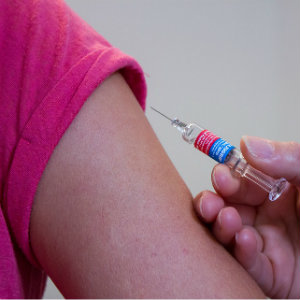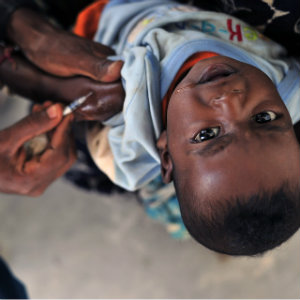Have you recently suffered a vaccine-related injury? You may be worried about such concerns as:
- How long will it take me to recover physically?
- Could this injury have been prevented?
- Am I eligible for financial compensation?
- Do I need a lawyer?
Our experienced injury lawyers can help guide you through this difficult time.
Our personal injury lawyers are here to help you earn the compensation you deserve.
Vaccines are one of the most important innovations of modern medicine. Without them, we would all be susceptible to a variety of life-threatening diseases. Vaccines have greatly increased the average lifespan and have created a safer society free from the risk of previously catastrophic diseases, such as polio and smallpox.
The vast majority of vaccinations are effective and free of serious complications. However, like any other medical procedure, there are some risks. A small percentage of people suffer serious adverse reactions after being vaccinated. When this happens, they can pursue financial compensation through a government program called the National Vaccine Injury Compensation program.
About The NVIC
Effective vaccination programs are an integral part of all modern well-functioning societies. In order to prioritize public health, the US government has enacted a no-fault system which compensates the victims of vaccine complications. Even victims who have been harmed by properly manufactured vaccines are eligible for compensation under the NVIC.
This system became necessary in order to protect pharmaceutical companies from high legal expenses faced during lawsuits. During the 1970s and 1980s, many companies stopped producing vaccines after a dramatic increase in these lawsuits.
The NVIC requires vaccine injury claims to go through the U.S. Court of Federal Claims before a traditional lawsuit is filed. If the claim is denied or the claimant finds the compensation inadequate, then he or she may file a personal injury lawsuit.
FREE VACCINE INJURY CONSULTATION
Common Vaccines & Injuries
Adverse reactions to common vaccines range from mild side effects like redness and swelling to life-threatening complications.
Flu
Flu vaccines are some of the most common and necessary. Many doctors suggest an annual vaccination to prevent the spread of influenza. These vaccinations vary from year to year, since the specific high-risk strains of this virus change on a regular basis. Common complications which result from flu vaccines include:
- Allergic reactions
- Fevers
- Headaches
- Vomiting
- Shoulder pain
- Guillain Barre Syndrome - muscle weakness caused by the body's immune system attacking the nervous system
Hepatitis B
An infection that affects the liver, most commonly acquired by exposure to infected blood or bodily fluids. Most newborns are vaccinated for Hepatitis B in the first days after birth. These vaccinations are 95% effective, but sometimes there are complications such as:
- Allergic reactions
- Fevers
- Trouble breathing
- Soreness
- Complications due to yeast allergies
Chickenpox
Chickenpox vaccinations are necessary in order to prevent the spread of this common condition. Most people are vaccinated as babies, but some adults require the vaccination later in life if they weren't vaccinated as children. Common side effects include:
- Brain damage
- Fevers
- Pneumonia
- Low blood cell count
- Seizures
HPV
HPV is an infection most commonly sexually transmitted, but can also be transmitted from a mother to her child during pregnancy. Doctors recommend HPV vaccinations during childhood, roughly between the ages of 9 and 13. HPV is the most common sexually transmitted infection. Common adverse reactions include:
- Fevers
- Headaches
- Seizures
- Fatigue
- Trouble breathing
- Weakness and fainting
Mumps, Measles, & Rubella (MMR)
Physicians typically recommend MMR vaccinations in infancy through a serious of injections. Most children are vaccinated for MMR in the first 12-15 months of life. Common complications include:
- Brain damage
- Deafness
- Blood disorders
- Fevers
- Seizures
- Swelling
Tetanus
Tetanus is an infection which is caused by exposure to a bacterium commonly found in soil, saliva, and dust. Doctors recommend five vaccinations throughout childhood, and then one additional vaccination every decade thereafter. Complications may include:
- Allergic reactions
- Brain damage
- Fevers
- Headaches
- Vomiting
- Pain, redness, and swelling
Do I Need A Lawyer?
Yes. The litigation process for vaccine injury victims is extremely complex and time-consuming. Experienced legal counsel is necessary for victims in order to navigate the complicated process of filing a claim in federal court and receiving appropriate compensation when a claim is unjustly denied or inadequate coverage is offered.
Not all vaccines are covered by the NVIC. In order to file a claim, you must have received a vaccine listed on the official Vaccine Injury table. In order to qualify for compensation, you and your legal representation must prove four things:
- You received a vaccine listed on the Vaccine Injury Table.
- An injury occurred within the "appropriate time interval following immunization."
- The injury lasted for at least six months after vaccination OR required a hospital stay and surgery.
- The injury was directly caused by the vaccination or a previous condition was aggravated by the vaccine.
It's important to keep thorough medical records in case you need to file a claim. These records will act as evidence in court proceedings. These cases are also time sensitive - you must file a claim within 3 years of the first symptom of injury, within 2 years of a death, or within 4 years after the first symptom of a vaccine injury which resulted in death.
If you or a family member has suffered complications from a vaccination, the experienced injury attorneys at Monheit Law can help. The claims process may seem intimidating at first, but the right counsel will be able to work through the complex federal claims process and help to earn the compensation you need for your recovery.

